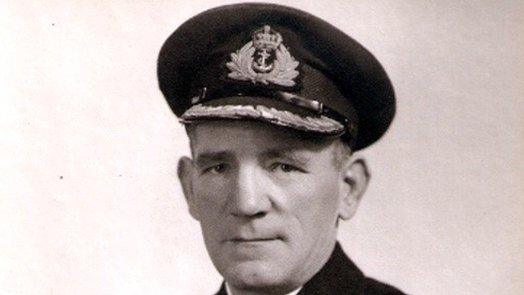East Yorkshire veteran, 100, to get France's highest honour
- Published
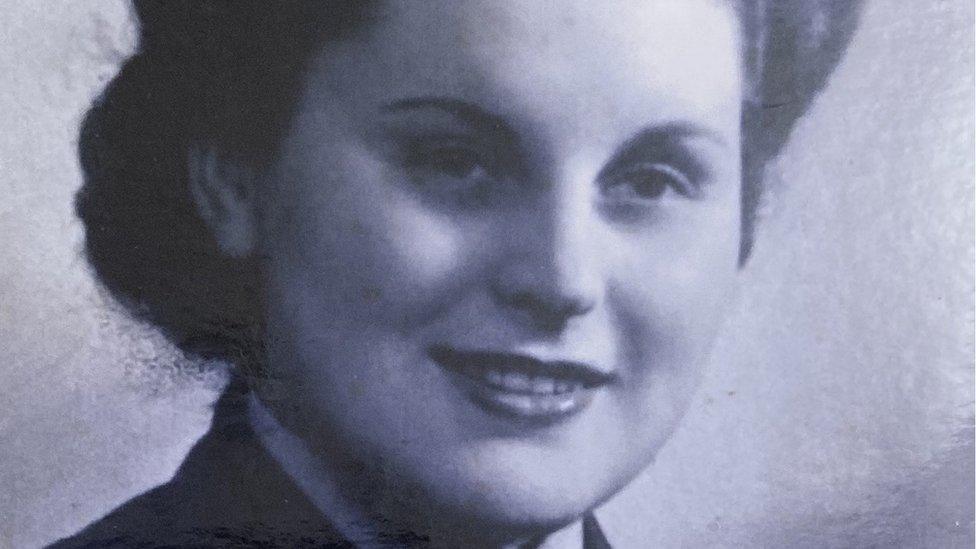
Gladys Lewis arrived at Bletchley Park in 1942
A female World War Two veteran is to receive France's highest honour for her work at the UK's codebreaking HQ.
Gladys Lewis, 100, from East Yorkshire, worked at Bletchley Park and has been awarded the Legion d'Honneur.
Her job involved typing up transcripts of decoded Nazi intelligence and she kept her vital work secret from her family for 50 years.
Mrs Lewis said she felt "proud" and said that during the war she hoped the messages were "doing some good".
Since 2014, France has awarded the accolade to more than 6,000 British veterans in recognition of their contribution to the liberation of France.
In a letter accompanying the medal, the French ambassador said: "We must never forget heroes like you who came from Britain and the Commonwealth to begin the liberation of Europe by liberating France.
"We owe our freedom and security to your dedication."
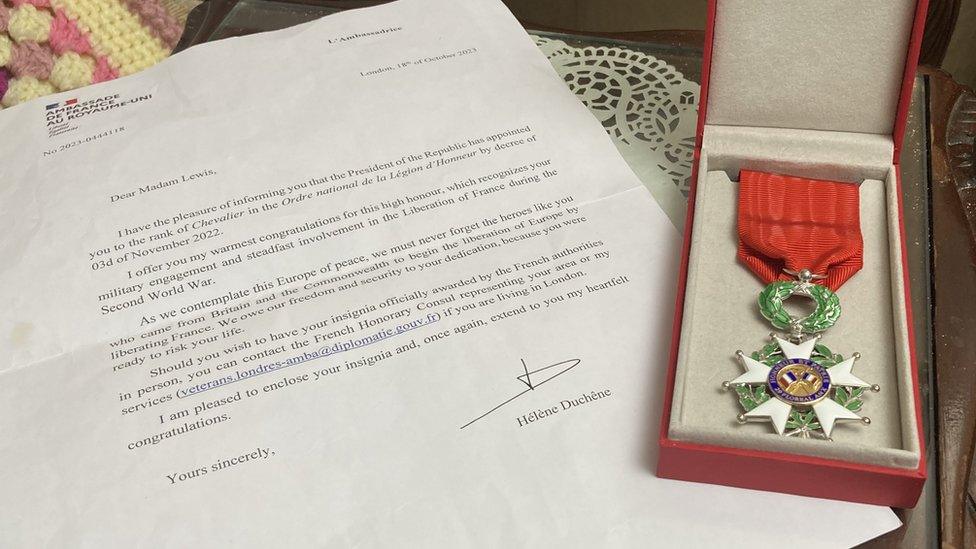
The Legion d'Honneur has been awarded to more than 6,000 British veterans for their work in World War Two
Mrs Lewis, who grew up in Sproatley near Hull, arrived at Bletchley in 1942 as a young member of the Women's Auxiliary Air Force (WAAF).
She said she had no idea of what took place there and the posting had come "out of the blue".
Mrs Lewis signed the Official Secrets Act and said secrecy was "drummed into you".
Even those working in different huts did not talk to each other about their roles, she said.
"You had to type five carbon copies of each message that you got. You can imagine what that was like on those old Imperial typewriters. You really had to hit the keys hard," she said.
"And you had to type them in a certain way - certain things had to be done in capitals and repeated.
"Place names had to be repeated. Positions of submarines had to be repeated."
She said the messages then went out to be transmitted to the wireless stations.
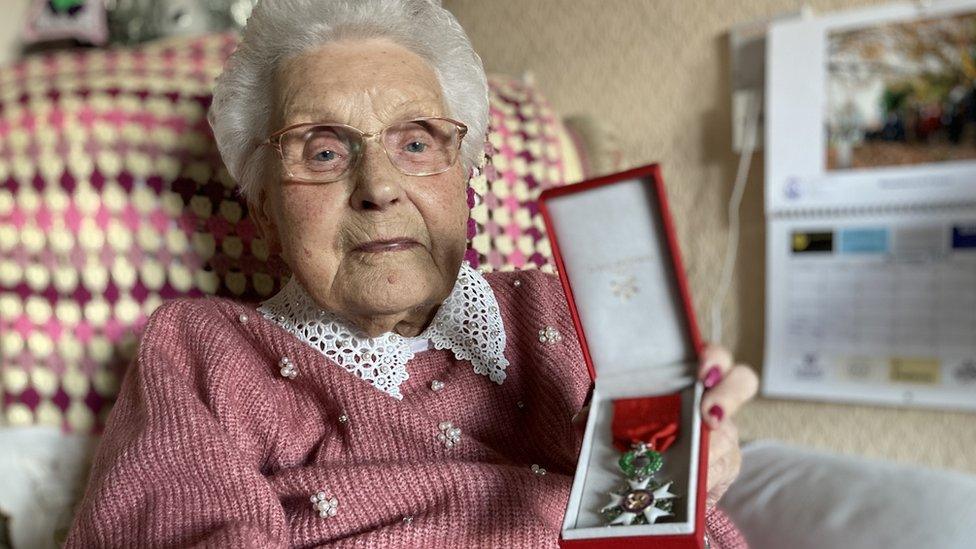
Gladys Lewis, 100, kept her wartime work secret from her family for 50 years
Mrs Lewis, who was promoted to the rank of sergeant, said all staff took the job very seriously.
"I used to feel proud. And I used to think, I hope they're doing some good and I hope they're helping," she said.
"If an operation was successful you used to get a message back on the teleprinter from either Montgomery or General Alexander, thanking us for our efforts and letting us know if it had been a success."
'Humble lady'
Mrs Lewis was put forward for the medal after two ex-servicemen from Bridlington, Martin Barmby and James Riley, applied to the French government on her behalf.
"She knew it was an important job. But she's a very humble lady, so she probably wouldn't tell you that herself," said Mr Riley.
Mrs Lewis recalled the days running up to D-Day on 6 June 1944 as very busy.
"We never stopped," she said.
"We were banging typewriters like they were on fire, messages going backwards and forwards. Just hoping that it was all going to work out.
"You knew that something big was going to happen.
"But you didn't know whether it was really going to be the end of the war or just another one of these battles."
Mrs Lewis will be officially presented with the medal at a ceremony on Tuesday.

Follow BBC East Yorkshire and Lincolnshire on Facebook, external, Twitter, external, and Instagram, external. Send your story ideas to yorkslincs.news@bbc.co.uk, external.
Related topics
- Published28 April 2022
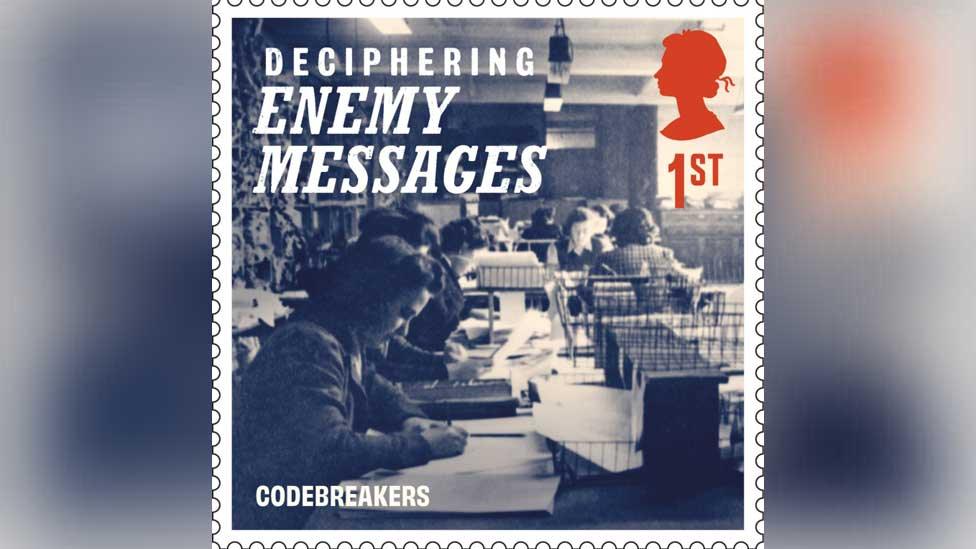
- Published15 May 2023
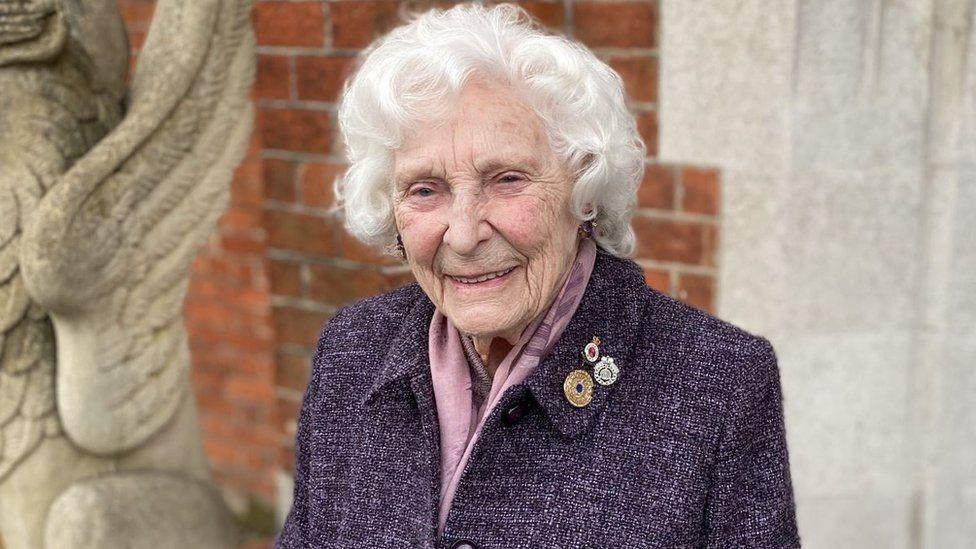
- Published23 April 2022
